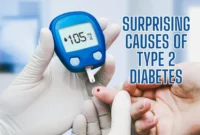Yefdw – Delusional disorder is a serious mental illness characterized by the presence of one or more delusions. These unshakable false beliefs can significantly impact a person’s life, relationships, and overall functioning. Recognizing the delusional disorder symptoms is crucial for early intervention and proper treatment.
People with delusional disorder often misinterpret perceptions or experiences, leading them to believe things that are untrue or highly exaggerated. Unlike individuals with other psychotic disorders who may also experience delusions, those with delusional disorder usually don’t have hallucinations or exhibit overtly bizarre behavior.
Understanding the various types of delusions and their associated symptoms is an essential step in identifying this complex mental health condition. With this knowledge, you can seek appropriate help for yourself or loved ones who may be experiencing signs of delusional disorder. Let’s dive deeper into this challenging disorder.
What is Delusional Disorder?
Delusional disorder is a type of psychotic disorder where the main symptom is the presence of non-bizarre delusions. These delusions involve situations that could possibly occur in real life, such as being followed, deceived, or loved from a distance.
People with delusional disorder often misinterpret perceptions or experiences, leading them to believe things that are untrue or highly exaggerated. Unlike people with other psychotic disorders who may also experience delusions, those with delusional disorder usually don’t have hallucinations or exhibit overtly odd behavior.
Types of Delusional Disorder
There are several different types of delusional disorder, each characterized by the predominant theme of the delusion(s):
Erotomanic Type
People with erotomanic delusions believe that someone, often a famous or important person, is in love with them. They may attempt to contact the object of the delusion and engage in stalking behaviors.
Grandiose Type
Grandiose delusions involve an inflated sense of self-worth, power, knowledge or identity. The person may believe they have a great talent or have made an important discovery.
Jealous Type
In the jealous type, the person is convinced their spouse or sexual partner is unfaithful, despite a lack of evidence. This can lead to confrontations and even violence.
Persecutory Type
Persecutory delusions involve the belief that the person (or someone close to them) is being mistreated, spied on, or plotted against. They may make repeated complaints to legal authorities.
Somatic Type
Somatic delusions focus on the person’s body – they may believe they have a physical defect or medical condition like a parasite or bad odor. This can lead to doctor shopping and excessive medical tests.
Mixed Type
The mixed type involves having two or more of the above delusional themes, with no one theme predominating.
Other Delusional Disorder Symptoms
In addition to the specific delusions, people with delusional disorder may experience:
- Irritable, depressed, or low mood
- Anxiety related to the delusions
- Anger or violent behavior, especially with persecutory, jealous or erotomanic types
- Lack of insight – unable to see their delusions as false or problematic
- Appearing normal when not discussing the delusional theme
Early warning signs that a person may be developing delusional disorder include:
- Feeling exploited or maltreated
- Preoccupation with the loyalty of friends/family
- Tendency to read threatening meanings into benign remarks or events
- Persistent grudges
- Readiness to react to perceived slights
Delusional Disorder vs Schizophrenia
Although delusions can occur in schizophrenia, delusional disorder is a distinct condition. In delusional disorder, the delusions are non-bizarre and revolve around situations that could happen in reality. Functioning is usually not as impaired as in schizophrenia.
Additionally, people with delusional disorder don’t exhibit other symptoms characteristic of schizophrenia, such as disorganized speech and behavior or “negative symptoms” like reduced emotional expression and motivation. Hallucinations, if present at all, are not prominent and are related to the delusional theme.
Who Gets Delusional Disorder?
Delusional disorder most commonly develops in middle to late adulthood, with an average onset around age 40. It’s equally common in men and women overall, but certain subtypes show gender differences:
- Persecutory and jealous types are more common in men
- Erotomanic type is more common in women
Certain populations are at higher risk for developing delusional disorder:
- People who tend to be isolated, such as immigrants, people with poor hearing or vision, and the elderly
- People with family histories of delusional disorder or schizophrenia
- People who abuse substances like alcohol or drugs
What Causes Delusional Disorder?
The exact cause of delusional disorder is unknown, but researchers believe several factors likely play a role:
Genetic Factors
Having a family member with delusional disorder or schizophrenia increases a person’s risk, suggesting there may be a genetic component. Studies of twins and families have provided additional evidence that genes are one piece of the puzzle.
Biological Factors
Abnormalities in certain areas of the brain that deal with perception and thinking may contribute to the development of delusions. Imbalances in neurotransmitters like dopamine have also been implicated.
Environmental/Psychological Factors
Stress and social isolation seem to play a role in the onset of delusional disorder. Psychological factors like low self-esteem, distrust, and excessive envy may make a person more vulnerable to forming false beliefs as a way to explain these negative feelings. Substance abuse can also contribute.
Diagnosing Delusional Disorder
If a person exhibits signs and symptoms of delusional disorder, a thorough medical and psychiatric evaluation is necessary. This usually includes:
- A physical exam and lab tests to rule out medical conditions that could be causing the symptoms
- A psychological evaluation, involving interviews with the patient and family members to assess the patient’s delusions, mental status, and functioning
- Diagnostic criteria from the DSM-5, which require that the person has one or more delusions for at least one month and does not meet criteria for other disorders like schizophrenia, mood disorders, or substance-related disorders
Delusional disorder can sometimes be misdiagnosed as other psychiatric conditions, so a careful assessment by a trained mental health professional is key.
Treating Delusional Disorder
Treating delusional disorder can be challenging, as most people with the condition don’t believe they have a mental illness and are reluctant to seek help. When treatment is initiated, it usually involves a combination of medication and psychotherapy.
Medications
Antipsychotic drugs are the primary medications used to treat delusional disorder. Both “typical” antipsychotics like haloperidol and “atypical” antipsychotics like risperidone can be effective in reducing delusional symptoms. Other medications like antidepressants and anti-anxiety drugs may be used to target specific symptoms.
Psychotherapy
Psychotherapy, especially cognitive-behavioral therapy (CBT), can be a helpful adjunct to medication. CBT helps patients recognize and change problematic thoughts and beliefs. Other therapy approaches, like psychoeducation and reality testing, focus on helping the person understand their disorder and distinguish between delusions and reality.
Building a trusting therapeutic relationship is essential, as many patients are initially wary of treatment. Involving family members can also provide additional support and improve adherence to treatment.
Living With Delusional Disorder
For people living with delusional disorder, sticking to the treatment plan is crucial for managing symptoms and improving quality of life. Attending therapy sessions, taking medications as prescribed, and learning healthy coping skills can all make a big difference.
Family and friends can provide invaluable support to loved ones with delusional disorder:
- Avoid arguing with or criticizing the person about their delusions
- Encourage and support their efforts to get help
- Take steps to keep everyone safe if the person is experiencing severe or dangerous delusions
- Seek support for yourself – loving someone with delusional disorder is challenging and it’s important to take care of your own mental health
With comprehensive treatment and a strong support system, many people with delusional disorder are able to manage their symptoms and lead fulfilling lives. Although it can be a lifelong condition, there is hope for recovery and wellness.
The Bottom Line on Delusional Disorder Symptoms
Delusional disorder is a serious mental illness that causes a person to hold false beliefs with unshakable conviction. By understanding the different types of delusions and other associated symptoms, you can be better equipped to recognize the signs of delusional disorder in yourself or someone you care about.
Although delusional disorder can be difficult to diagnose and treat, help is available. If you think you or a loved one may be experiencing symptoms of delusional disorder, reach out to a mental health professional for an evaluation. With proper treatment and support, it is possible to manage delusional disorder symptoms and lead a fulfilling life.
References:












